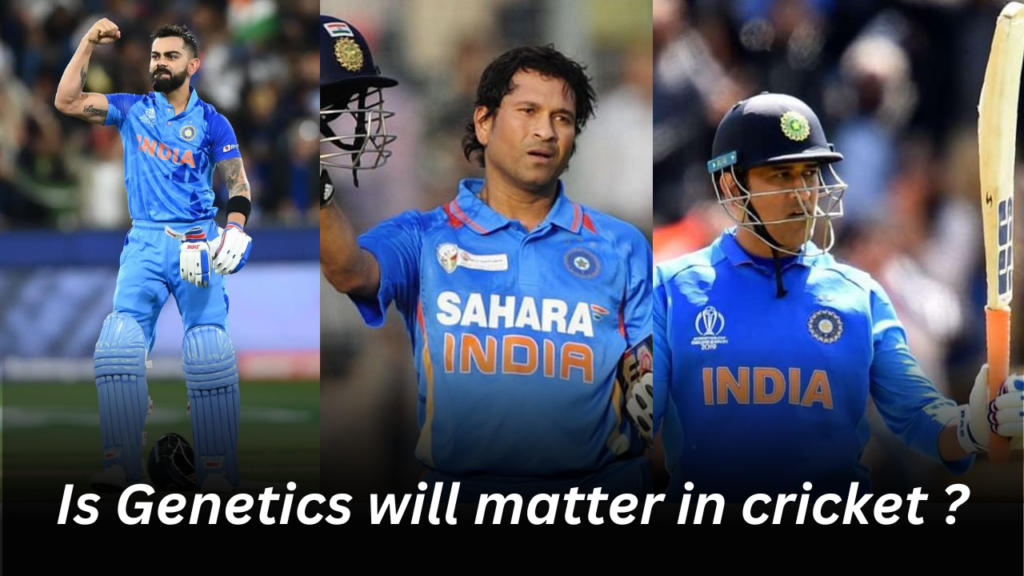Cricket is a skill- and strategy-based game that has evolved in player performance over time, with genetics being one of the contributing factors. This article discusses about is genetics will matter in cricket? and how player development and performance are affected by it.
Genetic Factors in Cricket Performance
When we talk about genetics in regard to cricket, we have to admit that it affects physical characteristics that are crucial to performance on the field. Cricket players need strength and power for batting, bowling, and fielding, hence muscle composition is important. rapid-twitch muscle fibers, in particular, have a natural tendency to produce explosive motions, which are essential for rapid bowling and aggressive batting strokes.
Another essential factor that is genetically impacted is hand-eye coordination. Effective shot timing and accurate bowling are dependent on natural neurological talents that differ between people. Similarly, genetic variables affecting nerve conduction speed and cognitive processing might affect reaction time, an important component in cricket.
The Role of Genetics in Skill Acquisition
Talent identification programs frequently look for those who possess particular genetic qualities that are helpful for success in cricket. But genes just give a base from which skills might be developed; they do not guarantee skill. Genetic variables influence training response, which affects how players develop their skills over time and adjust to coaching styles. Furthermore, hereditary predispositions may affect a person’s susceptibility to injuries, which could affect a player’s availability and longevity in the game.
Nature vs. Nurture Debate
The debate over the relative importance of genetics versus environmental factors in sports performance continues to intrigue researchers. While genetics contribute significantly, environmental influences such as training, nutrition, and socio-economic factors play pivotal roles.
Case Studies of Successful Cricketers
The relationship between genetics and performance can be better understood by examining the genetic composition of great cricket players. Research on the genetic makeup of athletes such as Virat Kohli, Shane Warne, and Sachin Tendulkar provides information about the genetic characteristics linked to exceptional cricket performance. These results help in spotting possible talent and customizing training plans to fulfill each person’s full potential.
Conclusion
In conclusion, genetics certainly has a big impact on cricket, affecting physical characteristics, learning curves, and injury fragility. Although talent is mostly based on inheritance, potential must be realized through a combination of surroundings and effective training. In order to maintain fairness and the integrity of cricket, ethical considerations must direct the including of genetic research as it advances into playing techniques.
Unique FAQs
- Can genetic testing predict cricketing success? Genetic testing can identify certain traits associated with athleticism, but cricketing success is influenced by a combination of genetic factors, training, and environmental influences.
- Are all elite cricketers genetically gifted? While genetics may confer some advantages, dedication, hard work, and effective training play pivotal roles in shaping elite cricketers.
- How can genetic insights benefit cricket coaching? Understanding individual genetic profiles can help tailor training programs to maximize strengths and address weaknesses, enhancing overall performance and injury prevention.
- Is genetic testing ethical in cricket? The ethical implications of genetic testing in cricket revolve around fairness, privacy, and potential discrimination. Careful consideration and regulation are essential to ensure ethical use.
- What does the future hold for genetics in cricket? Advancements in genetic technology offer exciting prospects for personalized training, injury prevention, and talent identification, shaping the future of cricketing excellence.

